

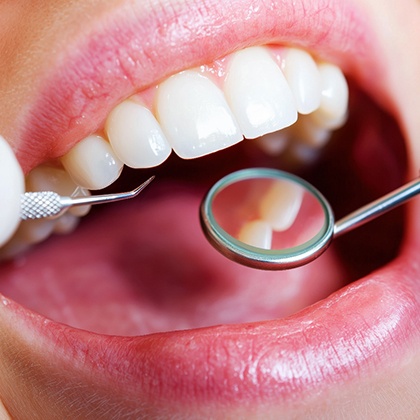
Gum disease is more than red, swollen gums or bleeding when you brush and floss your teeth. It’s a dangerous bacterial infection. In fact, if left untreated, it can cause many serious oral health problems from tooth loss to jawbone deterioration. But the good news is that gum disease treatment can stop gum disease in its tracks by reducing the amount of bacteria in your gums and protecting your smile from further damage.
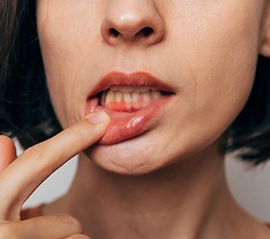
Gum disease (also known as periodontal disease) occurs when a bacterial infection within the mouth directly affects the gums and bone structure of the teeth.
There are two different types of gum disease: gingivitis, the earliest stage of gum disease, and periodontitis, which is the more advanced form of gum disease.
Though early signs of gingivitis can be reversed on your own by improving your oral hygiene routine, periodontitis can only be managed, not cured, to prevent it from worsening and causing irreversible damage such as tooth loss.
Factors that can increase your risk of developing gum disease include smoking or using tobacco products, poor oral hygiene, genetics, immune-compromising conditions such as diabetes, certain medications that could cause dry mouth, and even hormonal changes like pregnancy.

There are many warning signs of gum disease that will appear depending on how far the condition has progressed.
Signs of gingivitis:
Signs of periodontitis:
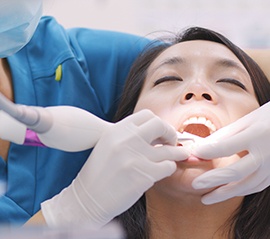
Scaling and root planing is a two-part treatment that can typically be completed in two appointments. Essentially, it amounts to a deep cleaning of the mouth. The goal is to remove harmful bacteria and allow your gums to bounce back from dangerous infections. Our expert hygiene team has lots of experience with scaling and root planing, and you can count on us to provide top-quality service.

You might benefit from scaling and root planing (SRP) if you are exhibiting signs and symptoms of gum disease, such as the following:
In some situations, early cases of gum disease can be reversed via regular oral hygiene. In other cases, SRP or other more extensive measures are necessary.
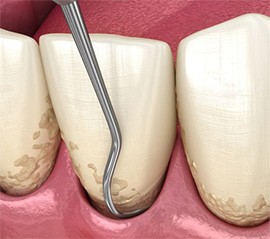
First, during the scaling portion of your treatment, our team will thoroughly remove all plaque and tartar from your teeth to minimize the presence of bacteria. If you have gum recession, we will scale down as far as possible in the pockets of your gums to make sure there are no bacteria left hiding.
During root planing, we will smooth out the surface of the roots of your teeth. This will help your gum tissue reattach to your tooth’s structure, reduce the risk of new bacterial deposits, and protect your tooth roots from harm.

SRP can be a rather intensive treatment, and it may take a few weeks for you to fully recover. These tips can facilitate a smooth healing process:
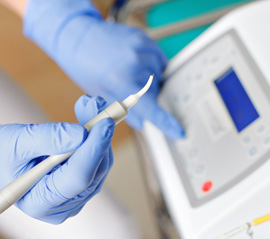
Laser periodontal treatment involves using our Picasso Diode Laser during deep cleanings to kill bacteria, remove plaque and tartar, and precisely withdraw severely damaged gum tissue. This will result in only healthy soft oral tissue being left behind, allowing the gums to reattach to the teeth to protect their vulnerable roots. With so many unique benefits to offer, laser periodontal treatment in Fargo is an incredibly effective way to combat gum disease.
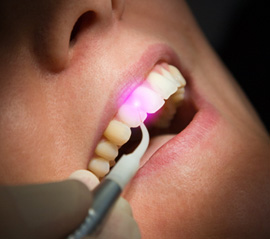
Laser gum disease treatment involves using our Picasso dental laser to more effectively and comfortably clean along the gumline and kill harmful bacteria that are exacerbating your symptoms. The laser itself emits a concentrated beam of light that vaporizes damaged tissue. It helps eliminate rough accumulations of tartar and bacteria on the roots and surfaces of the teeth to smooth them out as well. Laser periodontal treatment also helps shrink the pockets of the gums, helping keep bacteria from further collecting and leading to worsening symptoms.

Laser gum disease treatment offers a number of benefits, all thanks to the use of cutting-edge technology like our Picasso Diode Laser. Some of the advantages include:

Following your procedure, your mouth will feel sore, and you’ll feel some lingering discomfort. It’s important to maintain good oral hygiene to prevent bacteria from re-accumulating, as well as give your healthy gum tissue time to regenerate and heal. In order to do this, we advise you to:
If you have any questions following your procedure, we encourage you to give our team at Cornerstone Dental a call.